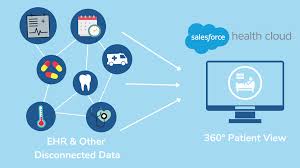Healthcare’s Trust Crisis: How Medical Misinformation Is Winning Over Young Patients
New data from Edelman’s 2025 Trust and Health Report reveals a troubling shift: Patients—especially young adults—are increasingly dismissing medical professionals in favor of advice from family, friends, and social media influencers. The result? A growing medical misinformation epidemic that puts patient safety at risk.
Young Patients Are Turning Away from Doctors—With Dangerous Consequences
- 45% of people aged 18-34 now prefer medical advice from friends and family over healthcare providers.
- 38% trust social media influencers for health guidance—a double-digit increase from last year.
- Nearly two-thirds of young adults actively seek health information online, often self-diagnosing instead of consulting professionals.
Even more alarming? 45% of young patients believe that “someone who’s done their own research can know as much as a doctor.” (Only 22% of adults over 55 agree.)
The High Cost of Misinformation
While social media and personal networks may feel more relatable, they lack the rigorous training of medical professionals—leading to dangerous misconceptions.
- 58% of young adults regret a health decision they made based on misinformation.
- The biggest sources of false claims? User-generated content (39%) and independent creators (29%)—common on platforms like TikTok and Instagram.
- Others point to family (25%), traditional media (21%), and social media contacts (21%) as sources of misleading advice.
Richard Edelman, CEO of Edelman, warns:
“Personal experiences on social media now rival the believability of data from doctors and government. We must flood the digital space with fact-based, easy-to-understand health information—before misinformation does more harm.”
Who Do Patients Actually Trust?
While doctors remain the #1 trusted source (82%), patients also crave human connection:
- 72% trust family and friends for health advice.
- 67% find people with lived experiences more credible than institutions.
- 64% value advice from those who’ve helped them in the past.
Jennifer Hauser, Edelman’s Global Health Co-Chair, explains:
“Patients don’t just want textbook answers—they want to feel seen and understood. Credentials matter, but emotional trust matters just as much.”
How Healthcare Can Fight Back
To regain trust, medical professionals must:
✅ Speak in plain language—not medical jargon.
✅ Leverage relatable storytellers (like survivors or patient advocates) to share accurate info.
✅ Meet patients where they are—using social media, influencers, and community voices to counter misinformation.
The Bottom Line
The battle against medical misinformation isn’t just about facts vs. falsehoods—it’s about who communicates them. If healthcare doesn’t adapt, trust will keep eroding, and patient safety will pay the price.
The time to act is now.














